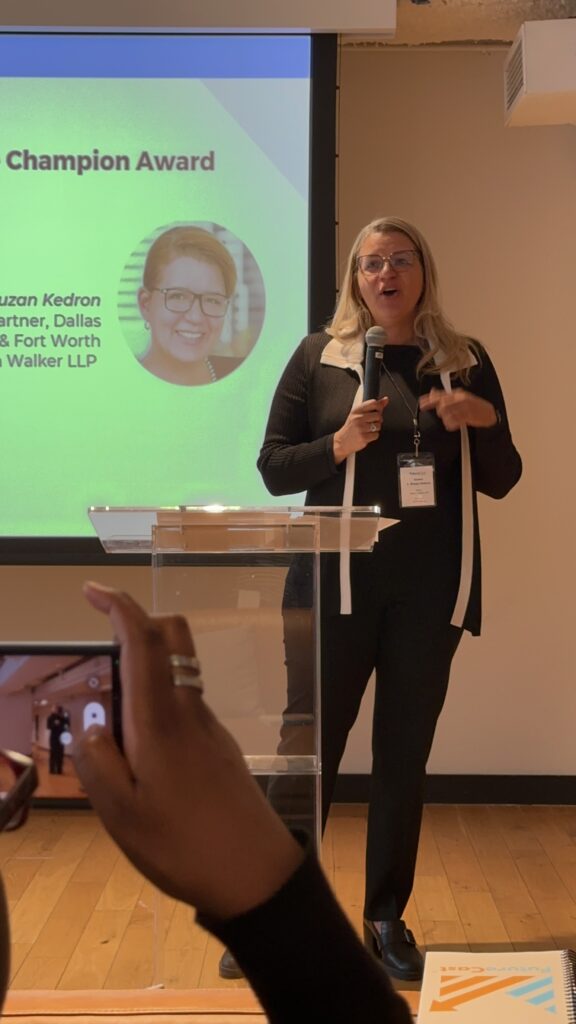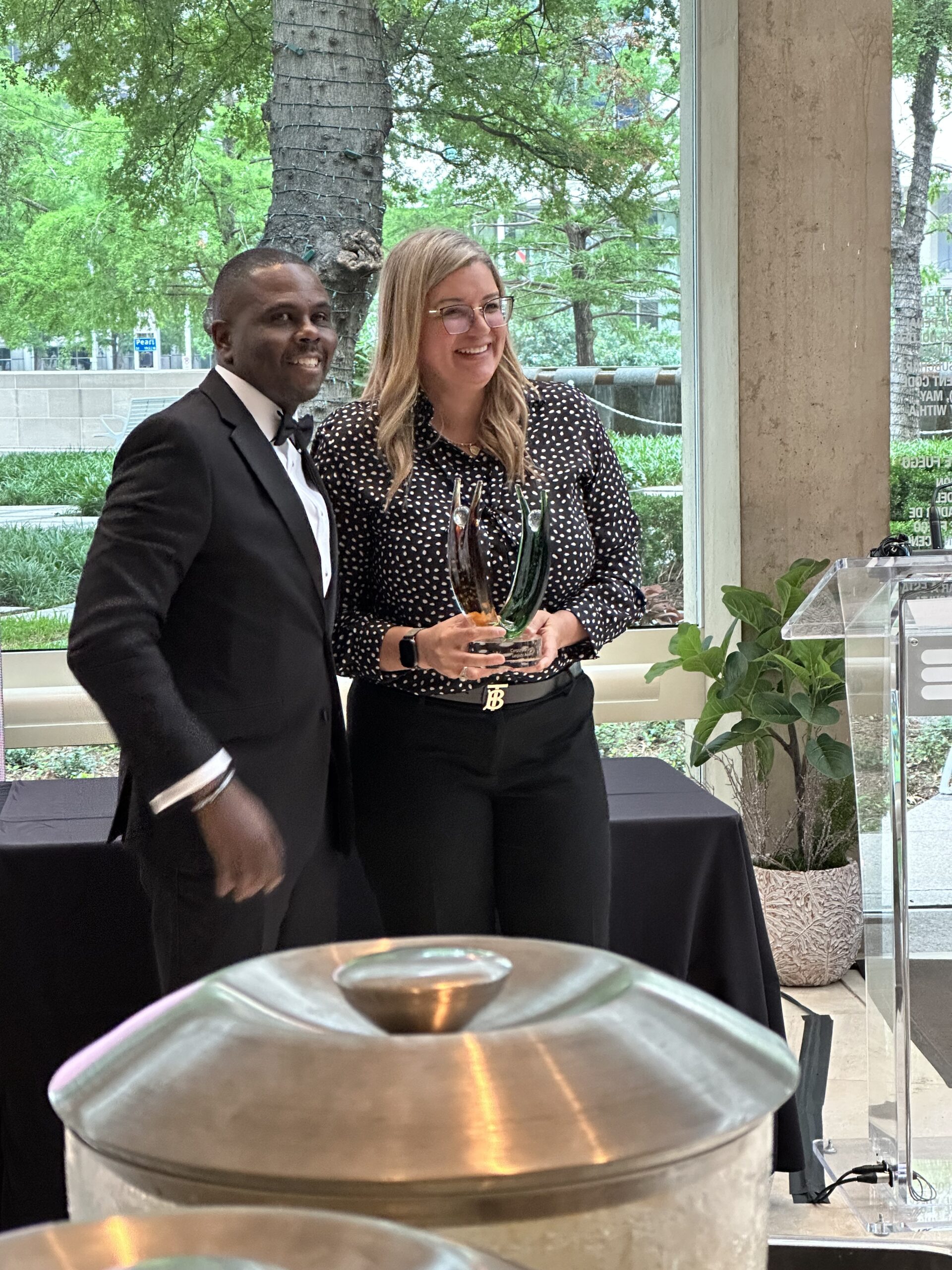When it comes to male-dominated areas of business law, it is easy “to notice when you are the only woman or the only person of color in a room,” said Jackson Walker partner Suzan Kedron, whose practice focuses on representing landowners and developers in litigation-related matters.
As Women’s History Month winds down, The Texas Lawbook interviews Kedron, who is a graduate of the South Texas College of Law Houston and widely recognized as one of the leading real estate lawyers in Texas.
In the interview, Kedron discusses how being a woman lawyer has changed during her career, the meaning of Women’s History Month and the elements that make diversity and inclusion programs effective.

Texas Lawbook: What does Women’s History Month mean to you and what should it mean to us?
Suzan Kedron: To me, Women’s History Month is a time to pause, reflect, and celebrate all the great women throughout history who have made an impact. It should be a time of gratitude for those heroines that have preceded us. And, finally, it should also be a time for us to reflect on the legacy we are creating for future generations.
Lawbook: Are there one or two women lawyers who truly influenced you? If so, how?
Kedron: Justice Sonia Sotomayor and Judge Judy. Each for vastly different reasons, of course, yet let me start with the reason both made my list. For me, seeing is believing, and I was able to actually see them both, which made them both more personal and identifiable. I spent many formative years in New York as a child and later as a young adult at Columbia. Justice Sotomayor’s ties to the New York Community were vast, and I recall seeing her at an event and thinking how amazing she was. I also felt a deep connection to and had a profound understanding of how she grew up. Basically, we shared a lot of commonalities that made me think if she could do it, so could I. Judge Judy on the other hand, I saw pretty much daily at home, my mom was and to this day remains a huge fan. With Judge Judy, I was taken by her directness and ability to control her courtroom. She is unapologetic in her commonsense approach to governance. I saw her as a Justice for the populous.
Lawbook: Justice Ginsburg stated that she experienced successes and setbacks during her time practicing law that she said was “because” she was a woman lawyer and sometimes “despite” being a woman lawyer? Have you witnessed this in your own career?
Kedron: It’s hard not to notice when you are the only woman or the only person of color in a room however, that is often the position I find myself in, so at some point you just get used to it, and you figure out how to make your difference your strength. Sure, there are many things that are harder when practicing law as a woman, especially if your practice takes you into areas that have historically been dominated by a man. Yet, you find ways to see things from a different perspective and add value based on those differences. My practice is Real Estate based which is still a very heavily dominated male industry. Yet, my subspecialty is in land use and entitlements which at its core is very diverse. Being able to translate a project from design and the board room to permit and the built environment is a skill that is enhanced by the fact that I am a diverse woman. Make your difference your strength.
Lawbook: In the legal industry workplace, how has being a woman lawyer changed during your time practicing law?
Kedron: I do think it has changed, changed for the better. Take parental leave for instance, when I was an associate, I don’t recall parental leave even being discussed. If someone took it, they were still working while out of the office. Now, it is much more accepted to take parental leave whether you are a man or woman. This is one small example of a refreshing change; I am happy to see.

Lawbook: Have any diversity and inclusion efforts or programs influenced your career either for the positive or negative and please explain?
Kedron: Personally, it has affected me a lot since I chair our Belonging + Inclusion Committee, admittedly I am biased. I took the job to make a difference and to have a positive impact on the core culture of our firm. Our program is reflective of who we are as a firm and inclusion programs are great when they are open to all as they are at my firm. When done right, inclusion programs, support and enhance the current culture and offer an additional outlet and venue for support for those who choose to participate.
Lawbook: What are the elements of diversity and inclusion efforts that you think are effective and ineffective?
Kedron: Effective approaches are well defined, increase inclusivity, and provide a venue for growth and support. Our Culture of Belonging Mission Statement encapsulates it well – Fostering a culture of belonging is a core, fundamental principle at Jackson Walker. Achieving excellence requires a broad range of perspectives, and we hold a responsibility to our clients and to each other to create an environment that reflects our core values of integrity, client focus, firm citizenship, added value, respect, and optimism. We are committed to fostering a culture where all attorneys and business professionals belong, ensuring a platform for everyone to thrive.
Lawbook: Do the attacks on diversity and inclusion efforts today will result in positive or negative impacts on the legal profession and why?
Kedron: An attack on anything is never effective. For something to work, there must be dialogue and communication. To the extent core principles are retained, and the communication lines remain open, then success will reign.
Lawbook: If you could recommend ways for us to celebrate Women’s History Month, what would they be?
Kedron: I am a huge fan of education and promoting the next generation. I like to celebrate Women’s History Month by picking a few intentional acts that will plant seeds for a future return, acts such as speaking to a grade school class about the practice of law, participating with or donating to a woman’s organization that promotes women’s issues, and giving an internship to a deserving young girl. Intentional acts don’t need to be heroic; they just need to be consistent.
Kedron: Are you optimistic about the future of women in this profession?
Lawbook: Absolutely.
